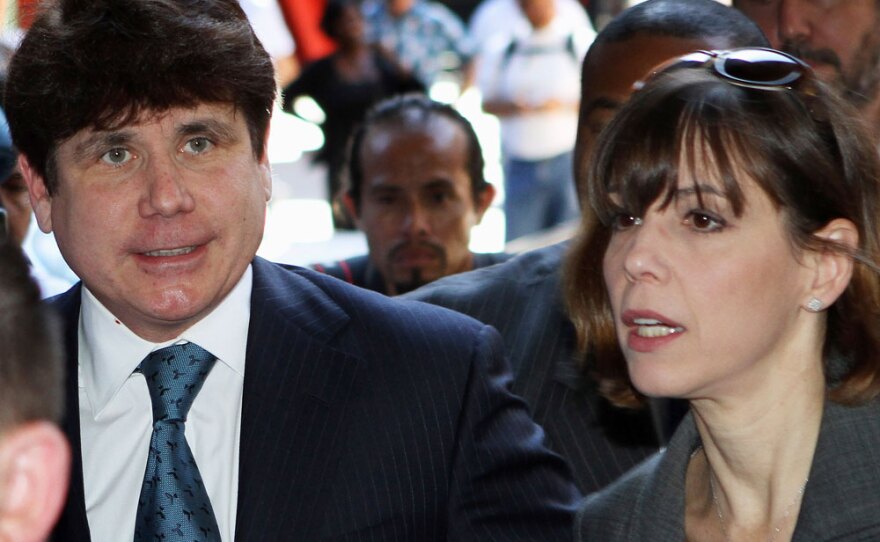Rod Blagojevich's fate Tuesday came down to a single vote out of 12, his jurors said as prosecutors vowed to retry the former Illinois governor on a bevy of allegations that he abused his powers in office.
Fellow jurors say one person refused to budge on multiple counts in a trial covering racketeering, conspiracy, wire fraud, bribery and extortion charges. Only on the least serious of the 24 charges -- lying to the FBI -- did the jury reach agreement.
For juror Steven Wlodek, it was a frustrating and disappointing experience.
"I myself am not happy with the way this ended," the 36-year-old Wlodek told NPR. "Based on the case that was presented, I do feel that there was guilt on more than three-quarters of the counts."
"I feel like we let the people of the state down," he said.
Another juror, Vietnam veteran and retired television station librarian James Matsumoto, 66, told The Associated Press he "had him guilty on all counts."
At the time of Blagojevich's arrest in December 2008, FBI surveillance recordings in which the governor could be heard allegedly discussing dollar figures for bribes and bragging about his power to fill the U.S. Senate seat vacated by a newly minted President Obama, looked to many like a smoking gun.
The former governor's audacious tone seemed to add insult to injury, and U.S. Attorney Patrick Fitzgerald called his behavior "a truly new low" and suggested that the state's most famous political figure, Abraham Lincoln, would "roll over in his grave" if he could witness it.
Twenty months later, the tables have turned. Although he faces five years in federal prison on the charge of making a false statement and a retrial on the other counts, Blagojevich on Tuesday was ebullient over the hung jury. He was cheered by a crowd of supporters as he left the Everett M. Dirksen federal courthouse in Chicago.
The government "threw everything and the kitchen sink at me," the former governor said, but in the end, except for the one "nebulous" conviction, prosecutors "could not prove I did anything wrong." He vowed to appeal the single-count conviction.
Fitzgerald stiffly thanked the jury for its service, promised a retrial and declined to answer further questions.
So, what happened? It's simple, said jury consultant William Healy. The pugnacious Blagojevich came out swinging and has spent the past year-and-a-half transforming himself from disgraced politician to celebrity, with numerous media appearances on Late Night with David Letterman and even getting himself symbolically fired by Donald Trump on NBC's Celebrity Apprentice, Healy said.
"Jurors are more willing to put away a politician and less willing to put away a celebrity," Healy told NPR, adding that many people had wrongly thought Blagojevich's pretrial publicity blitz was a foolish move.
The former governor has "made himself much bigger than all of this. ... He has put himself in a celebrity status," Healy said.
In addition, the case was complex, and Blagojevich failed to pull off any of the schemes for which he was accused. Former federal prosecutor Gil Soffer said the case was "a hard sell."
Even though the law is clear that conspiracy is a crime if there's evidence that two or more people take a "step to that goal," he said, "a jury wants to feel that not only do they have people talking about doing something wrong, but that they've done it."
U.S. District Judge James B. Zagel said Tuesday that he would give prosecutors time to decide whether to take Blagojevich to court again, but prosecutor Reid Schar spoke up immediately, saying it was "absolutely our intention to retry this."
Zagel has set a hearing for Aug. 26 to decide the manner and timing of the retrial.
Reporting from The Associated Press was used in this article.
Copyright 2022 NPR. To see more, visit https://www.npr.org. 9(MDAzMjM2NDYzMDEyMzc1Njk5NjAxNzY3OQ001))






